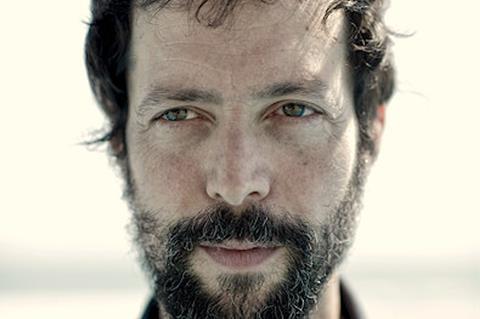
Noaz Deshe has had a varied film career as a composer, cinematographer and director. His feature directorial debut White Shadow, the story of a young Albino on the run, won him Lion of the Future Award at the 2013 Venice Film Festival. He has collaborated with Iranian director Babak Jalal as composer on Frontier Blues (2009) and as the cinematographer on Tiger award winning Radio Days (2016).
Deshe’s sophomore feature is German-French co-production Xoftex, which is co-written with Jalal. Xoftex is the name of a a Greek refugee camp for Syrian and Palestinian asylum seekers. To pass the time, camp inhabitants such as Nasser make satirical short films and prepare to make a zombie film. But the reality of the camp could be taken for a horror scenario itself.
The film is now screening as part of Karlovy Vary’s Crystal Globe Competition, and at the Munich International Film Festival as a joint world premiere.
Xoftex is produced by Berlin-based Arden Film and co-produced by French outift The Cup Of Tea. Worldwide sales are handled by MAD Solutions.
What inspired you to make Xoftex?
I was a contributor for Fairplanet.org and volunteering with CADUS, an NGO that provides medical aid in conflict zones. I documented their mission to rescue refugees from drowning off the coast of Libya. The missions at sea shook me to the core. I sent some of the footage to a friend who introduced me to Amed Khan, a prolific humanitarian operator. He urged me to spend time in a refugee camp in Greece. The conditions of the camps in Greece, during that period, were plagued by rampant corruption and abuse. I asked my colleagues which camp they found most challenging. The unanimous response was Softex, situated in a former burnt-out toilet paper factory within a toxic wasteland.
I arrived at the camp and spoke to people smoking outside a hole in the fence. Very quickly we found ourselves sharing ghost stories and filming a short movie, quickly bonding. [Eventually], I initiated a regular weekly workshop at Softex with my long-time collaborator, Nassos Chatzopoulos. During this period, I met Ali Abbas, his brother, and friends, who wanted to make a zombie film in the camp. Throughout my time there, I documented and archived the process, not knowing what it might become.
Ali Abbas inspired Xoftex. He shares a writing credit on the film and is the protagonist of a documentary reflecting Xoftex, set to be completed next year.
You eschew heavy realism and straight narrative. Was the approach a desire to shake up the traditional ways of approaching these narratives?
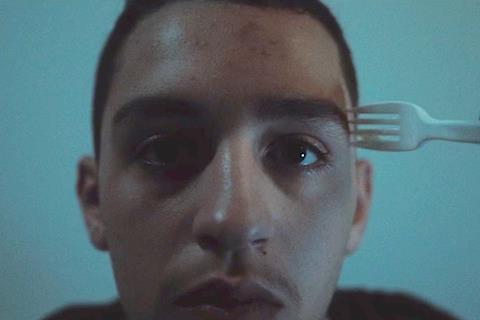
Mainstream media tends to dehumanise, pushing audiences away rather than drawing them closer. Images of victims, especially from ongoing genocides in Gaza or African nations suffering severe human rights abuses, are designed to provoke anger rather than understanding. Even well-intentioned efforts can create distance by failing to balance images of horror. Fiction, or hybrid fiction, allows us to document the unseen.
How did you cast the film?
Much of the casting was done by Majd Hafiry and Osama, who plays Yassin in the film. They brought not only their expertise and community but also a great deal of luck and energy. We spent a significant period filming scenes and conducting screen tests, discovering along the way who should play each part. Those early meetings and a trip together to Sweden to film documentary footage of Ali Abbas and the original Softex protagonists who had received asylum near Malmö cemented our collective ambition to make the film.
How it was to film as a practical experience?
We were fortunate to have the support of the German migration authorities, who allowed us to use a storage space for refugee camp container housing. We restructured it to resemble camps in Greece, complete with an actual train passing behind it. Much of the film was shot handheld, relying mainly on practical lighting. Babak Jalali who co-wrote the film and has been a significant inspiration for any work of mine, joined us on set. His presence allowed us to adapt quickly to the ever-changing demands of the shoot.
How did you raise the funding for Xoftex?
Research and timing were crucial factors. The documentary materials from the camps set the tone early on and caught the attention of Andro Steinborn, who joined as a producer well before the screenplay was finalised. Together, we prepared numerous funding applications.
It all became possible when we connected with Lucia Haslauer, chief editor at [German broadcaster] ZDF. With cultural funds like BKM Medianboard, additional supporters, including angel investors like Westward from the US and The Lift from Mexico, joined in, shaping our approach and influencing the editing process in post-production.
Finding initial support was challenging, but Andro’s expertise in navigating funding channels was key. Constructing funding is akin to solving a complex puzzle, involving commitments that dictate shooting locations and crew choices, alongside the usual production challenges.
What are you working on next?
Firstly, to complete the edit of Ghost In Radar, the documentary mirror of Xoftex. It follows Ali Abbas, who is a Palestinian Syrian, from Softex in Greece to Sweden, over the course of several years.
I have also been filming a documentary in Ukraine together with Beau Willimon and Peter Verzilov; it is a particularly intimate look at relationships during the war.
Majd and Osama Hafiry, who have had success with their own short film, remain in close contact with the creative core of the film, and we plan to collaborate on future projects.
What I look forward to most is to make comedy. Let’s see.













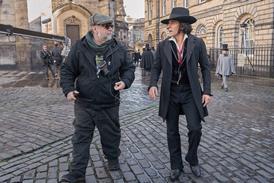
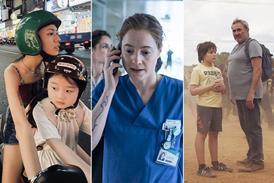
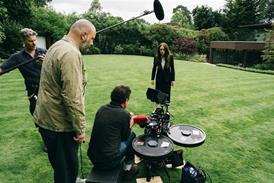







No comments yet